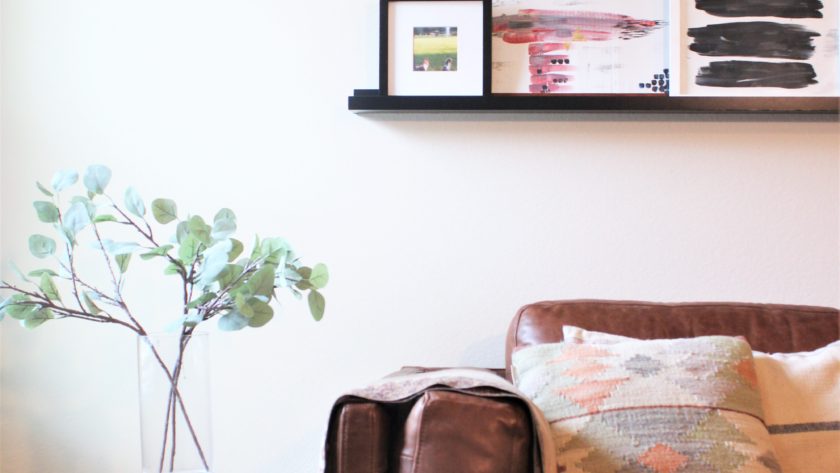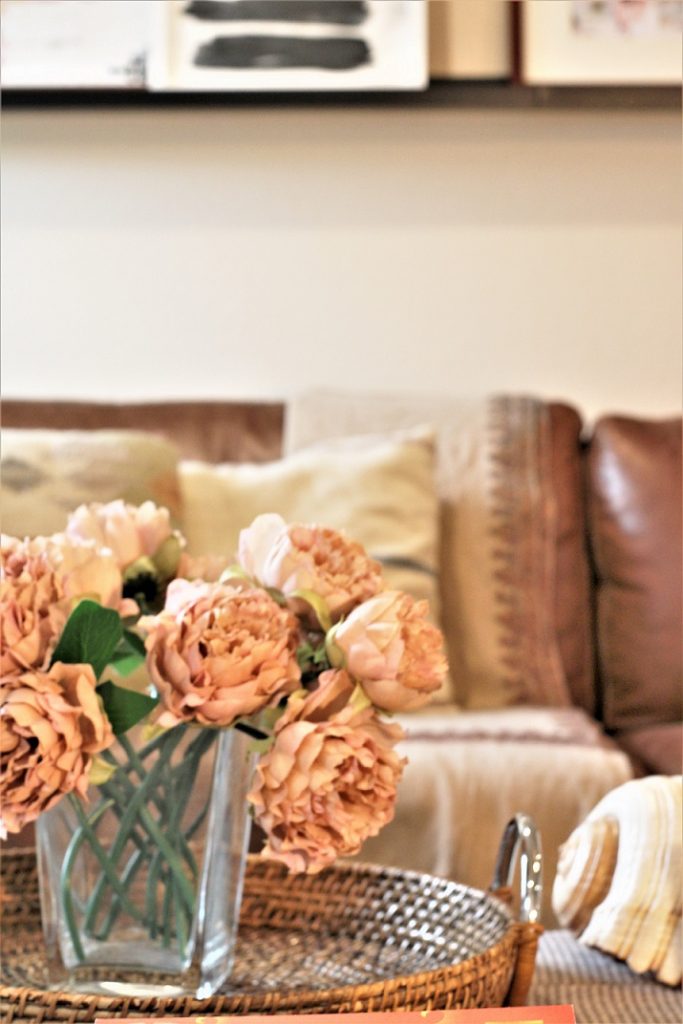I’m writing this as part of Evolving Traditions: Home Edition. It’s hosted by one of my best friends: Fatima from the delish food blog fatima-rana.com (Check her out – you won’t regret it!). The memo was simple enough: share an heirloom piece from our home with our followers. Preferably something you keep at home to remind you of your family and/or family traditions.
According to Wikipedia: In popular usage, an heirloom is something that has been passed down from generations through family members.
When I sat down to figure out what I would post about, there were way too many options that come to mind. Should I write about my maternal grandmother’s gold buttons that you can clip on to any kurta (short traditional shirt), or my paternal grandmother’s lovely thick bangles. Or maybe my maternal grandmother’s dusty pink velvet kameez (long traditional shirt) that I fell in love with at first sight, imagining it hanging like an art piece in a bohemian-inspired room with plants surrounding it. My maternal grandmother’s numerous dupattas (scarves) and saris also begged for the attention that was due to them. Then I wondered about my mom’s engraved trays, woven baskets and huge rosary beads that she’d found in the streets of old Lahore.
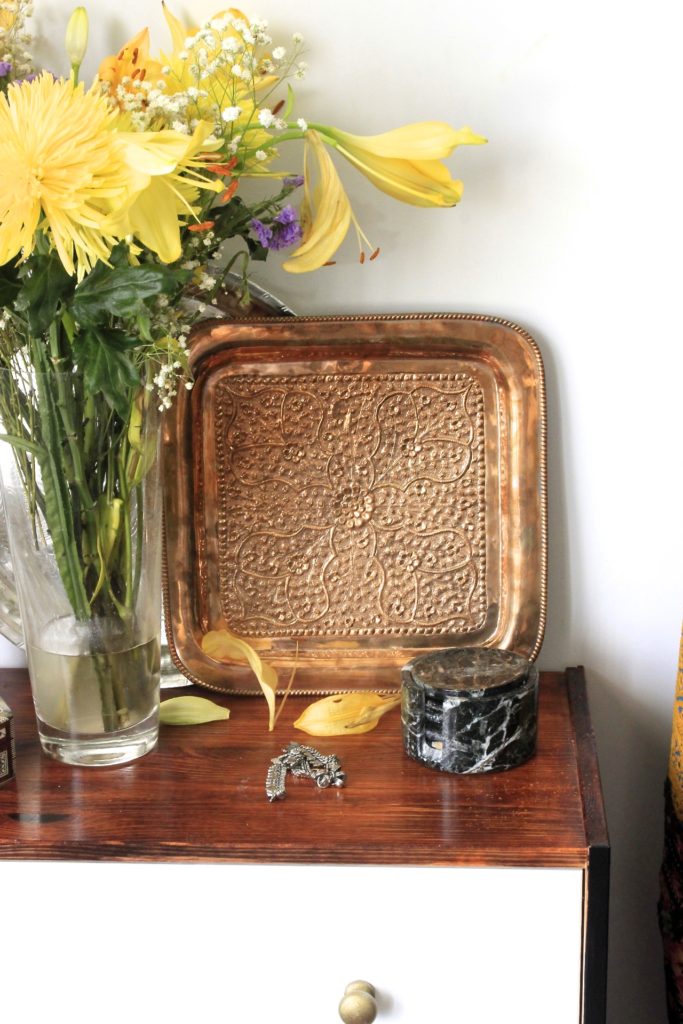
The treasure trove of antiques my mother in law has passed down to me protested and demanded to be included as well. Hand crafted mother-of-pearl encrusted wooden chairs and engraved brass trays from Egypt, the most beautiful rug from Afghanistan, and even the gorgeous shells she’d kept as a souvenirs from Karachi – each with their own special tale.
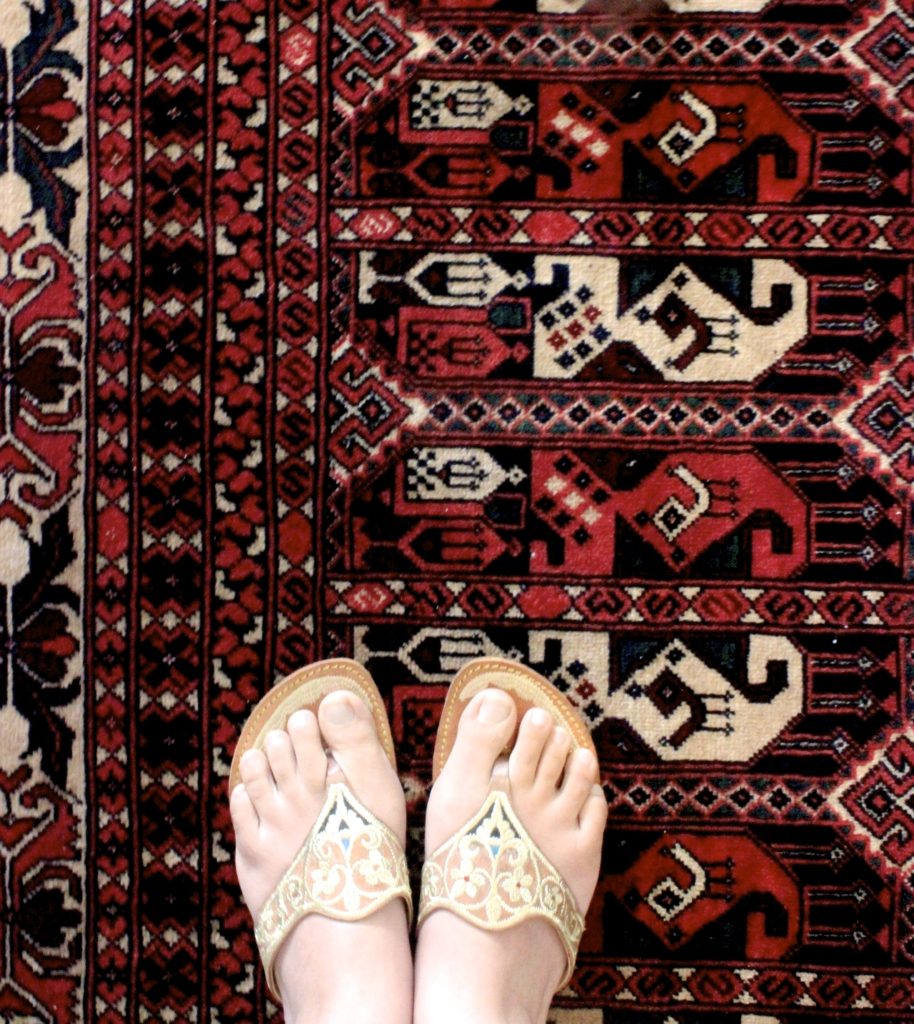
There are so many things that surround me that remind me of my family and our traditions daily. The basic stainless steel tea pot my mom got for me that reminds me of our yearly Murree trips growing up. We’d gather around in the cold, my sisters and I nudging at each other trying to be closest to the show of steaming mugs of tea being poured out of stainless steel kettles at a road side khokha (street vendor)!
Ultimately, I decided not to focus on the antiques nor the exotics today. Not everyone has these things. But you know what everyone in Pakistan most certainly has and that we use every single day and in turn they remind us of our families and our roots? Dupattas/textiles (any kind) or in my case: my Ammi’s shawl.
Feather Waltz by Kevin MacLeod
Link:https://incompetech.filmmusic.io/song/3743-feather-waltz
License:http://creativecommons.org/licenses/by/4.0/
I used to call my elder phupo (dad’s sister), Ammi. We all did. She was everybody’s Ammi. Ammi and Dado (my paternal grand mother) lived with us, as is common in Pakistani households. From my first waking moment I remember them always being there. Ammi didn’t get married after a painful fall out that she had to go through and we never asked questions about it either, because we knew it was a tender subject that would bring her and the family pain. Even as kids we knew never to ask. We just enjoyed the privilege of having the love (and scoldings) of two moms at our house.
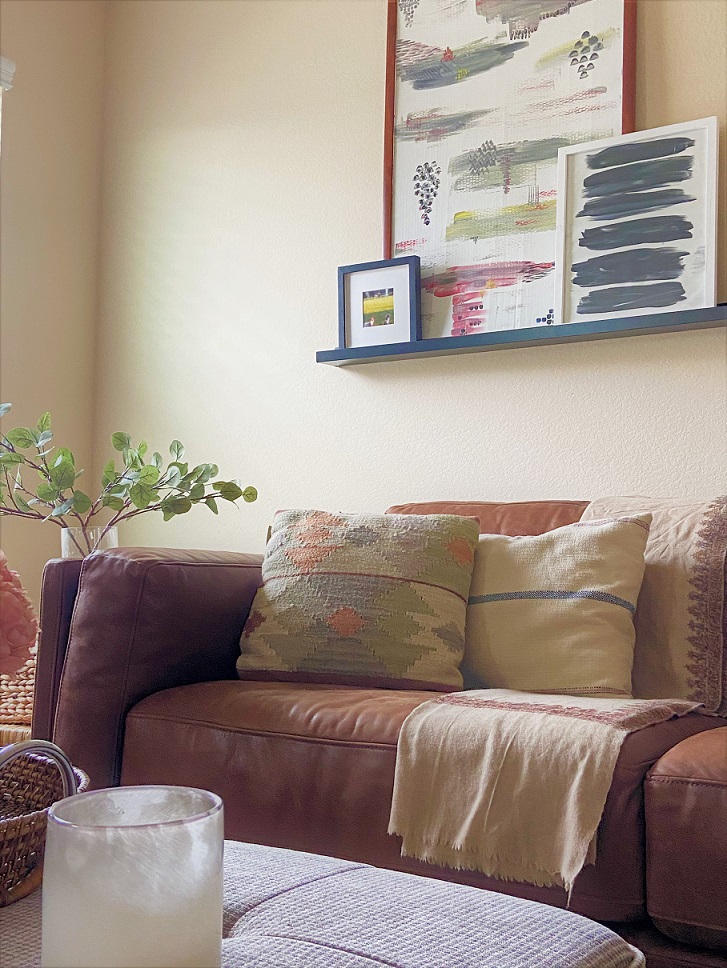
I feel so privileged to have been able to spend time with Dado and Ammi. Not everyone has the chance to spend time with their buzurg (elders) like that. My father loved both dearly, and I’m sure they knew it too, because they couldn’t imagine living elsewhere. Having elders in the house, I feel, offers rewards from beyond this world. It offers the kind of blessings from Allah that one wouldn’t believe possible if they don’t experience it themselves. No matter what the world throws at you, there’s some special protection around you. My mum has very strong faith in this, and she taught me this dua (prayer). And I’m reminded of all our elders whenever I recite it.
رَّبِّ ارْحَمْهُمَا كَمَا رَبَّيَانِي صَغِيرًا
My Lord, have mercy on them, as they raised me (when I was) a child.
―Quran 17:24
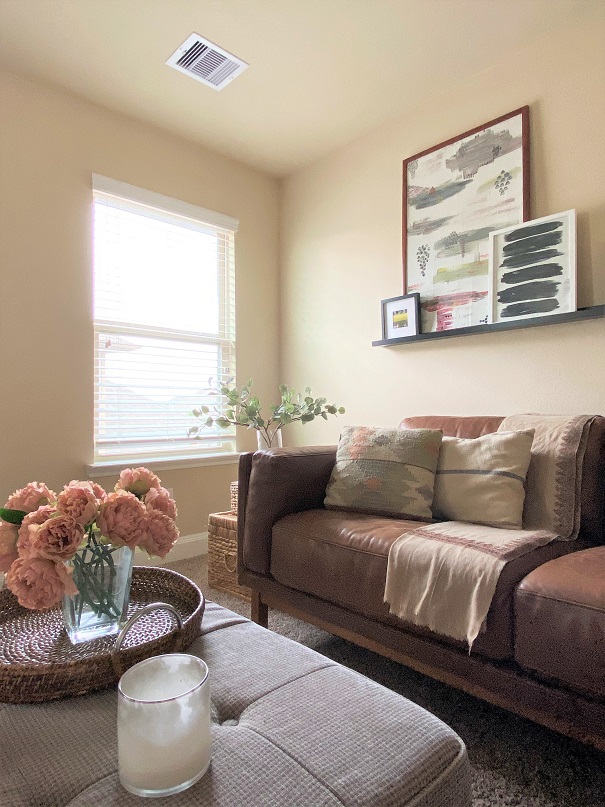
My Ammi passed away on the 30th of October, 2019. May Allah bless her with Jannat-ul-firdous, and forgive her all her sins, and bestow on her His special mercy and rahm. I was in Houston at the time, far away and alone. There was no way I would be able to make it to the funeral on time. It was surreal. It is a grief one cannot explain, just experience. I am thankful everyone else was there for her at this time, I remember when my Dado passed away while my mother was caring for me in Australia because of a complicated pregnancy. My father and sisters alone in Pakistan and my mother not being able to make it on time. It was an extremely traumatic experience for us. For months after I was looking at the phone waiting for another phone call with terrible news. It takes a long time to shake off the feeling of impending doom like that. Losing someone and being alone during the loss, not being able to grieve with your loved ones is a special kind of difficulty. That is why perhaps when we are far away from home, we cherish these heirlooms more, because they remind us of the people we love. Of home, of familiar comfort.
When I went back to Pakistan for my sister’s wedding in December, stepping into a house without Ammi in it, was odd. Because she had always been there – literally and figuratively. My heart in denial wanted me to believe she was just out to see Phujan (her sister) and would be walking in at any moment. It was difficult to come to terms with the idea that she was no more… We had the wedding, but her absence was felt deeply. My mother would badger her about getting her outfit stitched for the wedding, but she would always say “No, let it be”…and perhaps she had known. Mama still has the cloth for that outfit with her. It warms my heart to think of the different fabrics and clothes around me and the emotional significance they hold.
For me, this particular shawl symbolizes a quirky person full of life, a big personality with a strong opinion on everything, and a loving heart I leaned on for 30 years. She was Ammi, my Ammi. Making me Aloo Gajar (which we both loved) or her Zarda (which all of Lahore gathered in our home for).
Ammi was also particular about her housekeeping. There wouldn’t be a SINGLE wrinkle on her bed sheets, she would pin the sheets down so tight that no matter who sat on them they wouldn’t budge. I remember her yelling as we laughed and jumped up and down on her freshly made bed screaming “Ammi! Look nothing happens!”
I looked around her sparse wardrobe in Lahore, hoping to find something of hers that I could bring back with me to cherish. I found this particular shawl and asked if I could have it. My mother agreed, reminding me to pray for her every time I used it.
Windswept by Kevin MacLeod
Link: https://incompetech.filmmusic.io/song/4629-windswept
License: http://creativecommons.org/licenses/by/4.0/
Since that day, there is nothing more dearer to me than this shawl. It is a constant in my life as well as my home decor. It reminds me of the special kasuri methi (fenugreek leaves) she would add in the Aloo Gajar she would make for the two of us. Or the bhunni hui daal which was Ammi’s secret recipe and a family tradition of ours to serve at every dawat (formal dinner).
I remember sitting on the floor on a Sunday afternoon and asking Ammi to oil my hair as both of us sipped our third cup of tea. Watching TV with her as she made fun of the sitcoms she was watching. I remember that and more every time I touch that shawl. I make dua for her every time I use that shawl for namaz. I drape it on my sofa sometimes wrinkle-free just like she would like it and sometimes messily the way I like it. There is nothing else in the world that fits the family heirloom better than that shawl for me. Shawls and dupattas are so underrated when it comes to home decor. Over the sofa arm or thrown in the middle. Folded nicely over a headboard, or at the foot of your bed as a throw. Or perhaps draped on a bench with a stack of books on it and a plant on the other end. The possibilities are endless.
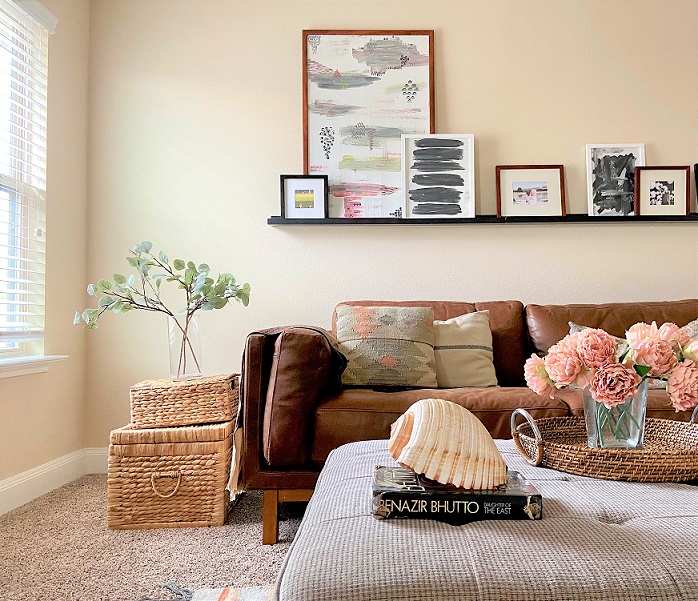
It doesn’t matter how expensive, or high quality it is. Whether it’s 100% cashmere or 100% polyester. Whether a million other people have one just like it or if it’s the only one of its kind. When it comes to family heirlooms none of that matters. The memories attached to that object are what give it its true value. The rush of emotion you feel revisiting them every time you touch that object or engage with it is its true worth. That is what matters. So whatever you have, whether it’s a cushion cover, an old dupatta, a piece of torn fabric. Use it, frame it, own it, love it, tell its story and make it a part of your home and in turn, a part of yourself.
As you scroll through and return to the things that bring you joy in your lives, please say a quiet prayer for my Ammi who brought so much quirk and joy to mine. Pray Allah grants her peace and happiness in the hereafter, pray that we can all be united in Jannah together.
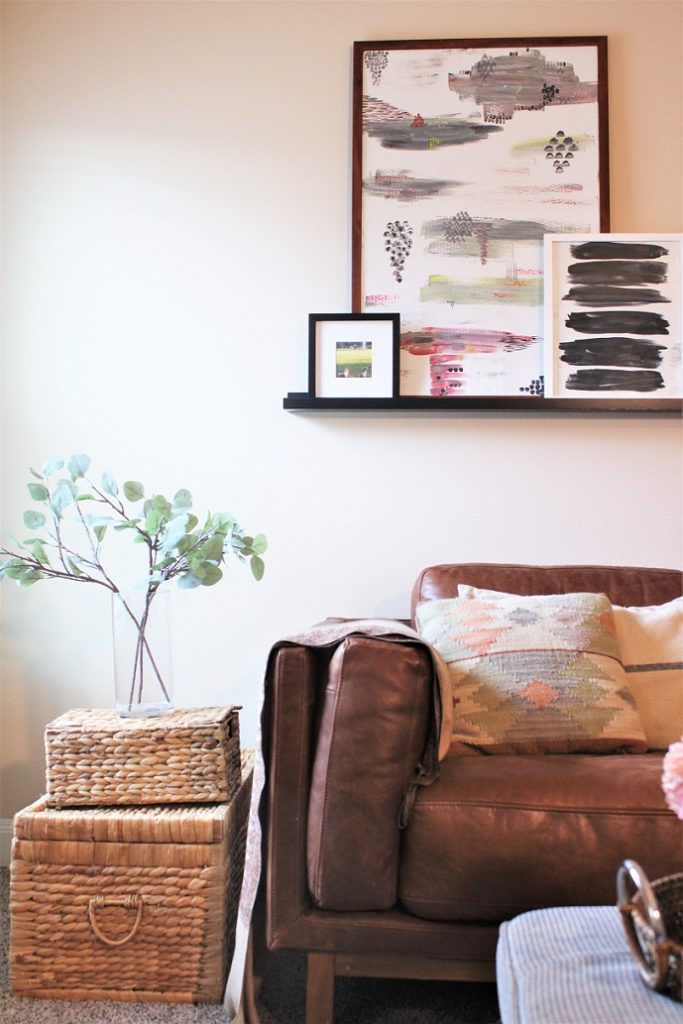
And so I am reminded of whenever I look at this precious family heirloom, sitting pretty and styled on my sofa, the family tradition of cherishing our elders, loving them, caring for them as they care for us. I am reminded to hold our elders in high regard and have tawakal in Allah to reward us for the sacrifices we make to please them. The family tradition to remember only the good times with fondness, and to make dua for our loved ones who have passed when our heart feels heavy with sorrow. May Allah protect all our elders and loved ones, give them long, healthy and happy lives; through their contentment, make Allah pleased with us.
“My Lord, have mercy on them, as they raised me (when I was) a child.” Quran 17:24
Ameen Sum Ameen

